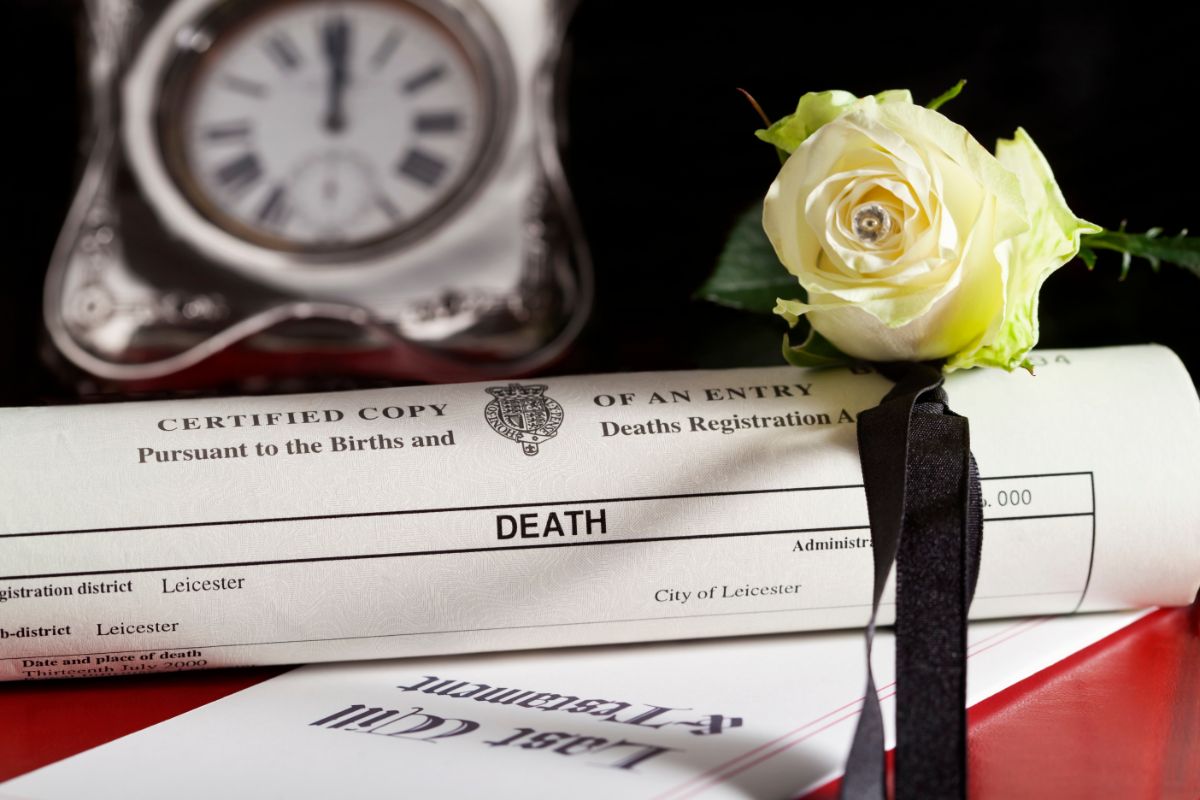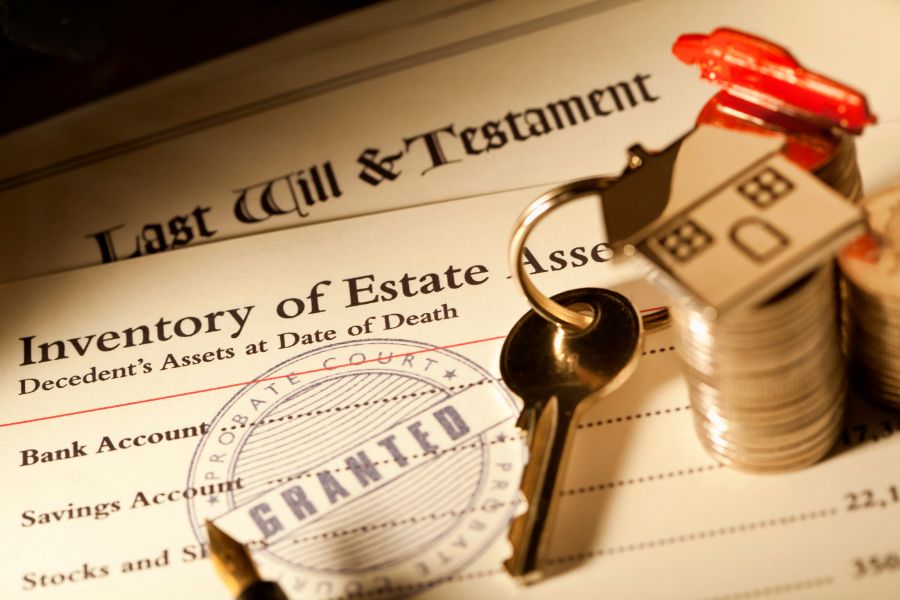How Do I Apply for Probate?
Applying for probate involves several critical steps to ensure the proper administration of a deceased person’s estate. Probate is the legal process that ensures a person’s assets are distributed according to their will or the law. Although it can be complex and time-consuming, with the right guidance, you can navigate through it smoothly.
Key Takeaways
Structured Process: Start by registering the death and estimating the estate’s value, then determine whether probate is necessary and gather the required documents, including the original will and death certificate.
Application Methods: Applicants can submit probate applications either online for efficiency and potential cost savings or by post if they prefer traditional methods. Online applications are generally processed faster. Each method requires accurate and complete documentation to avoid delays.
Probate Fees and Inheritance Tax: Executors or administrators must consider probate fees based on the estate’s value, deal with inheritance tax if applicable, and handle the distribution of assets post-probate, potentially seeking legal advice for complex or disputed estates.
Operational Hours: HMCTS phone lines are closed on weekends and bank holidays, so it is important to understand these operational hours when seeking assistance.
Understanding Probate
Probate grants legal authority to manage and distribute a deceased person’s estate according to their will. This usually involves the executor named in the will, who is responsible for carrying out the deceased’s wishes. The probate document, often referred to simply as “probate,” serves as a court’s permission for the executor to deal with the estate. The estate includes all the deceased person’s money, property, and personal possessions. If the estate includes owned land, such as a house or flat, probate or letters of administration are generally required to manage it. In cases where there is no will, the next of kin must apply for letters of administration.
Comprehending the probate process is vital, ensuring the deceased person’s wishes are adhered to and the estate is correctly distributed. Executors or administrators must adhere to specific rules and procedures to fulfil their duties effectively. This foundational knowledge sets the stage for the subsequent steps in the probate application process.
Before You Apply for Probate
Before embarking on the probate application, you must complete several initial steps:
Registering the Death

The first step is to register the death and obtain a Certificate of Registration of Death, commonly known as the death certificate. This must be done within five days of the death occurring. Registering the death is a critical step, as the death certificate is a mandatory document for the probate application process.
Estimating the Estate's Value
Estimating the value of the estate is necessary to ascertain if inheritance tax applies. This involves assessing all the deceased person’s assets, including money, property, and personal possessions. Solicitors can assist in estimating the estate’s value and reporting it to HM Revenue & Customs if necessary. Understanding the estate’s value will help in making informed decisions about inheritance tax and whether probate is needed immediately or if there are additional steps to take.
Determining the Need for Probate
Ascertain if probate is indeed necessary before initiating the application process. Depending on the estate’s value and the assets involved, you may be able to proceed without it. Services like “Tell Us Once” can simplify this process by allowing you to report the death to multiple government services in one go, further streamlining the necessary preparations.
Documents Needed for Probate

Possessing the correct documents when applying for probate is essential to prevent delays and facilitate a seamless process. The required documents include:
- • Original Will: Along with three copies.
- • Death Certificate: A death certificate or an interim death certificate from the coroner is mandatory.
- • Inheritance Tax Forms: Depending on the estate’s value, you will need to fill out either the IHT400 form for larger estates or the IHT205 form for smaller ones below the inheritance tax threshold.
Ensuring all these documents are accurate and complete is vital. Incomplete or incorrect documentation can lead to significant delays in the probate process. Gathering these documents ahead of time will prepare you for the next steps in applying for probate, whether online or using paper forms.
Applying for Probate Online
Submitting your probate application online offers a convenient and efficient approach, with faster processing times compared to paper forms. As of November 2020, all grants of probate must be made online, streamlining the entire process. This method allows you to submit all required documents and track the progress of your application from the comfort of your home. To get started, you will need access to the internet and a list of necessary documents, which include the original will, death certificate, and completed inheritance tax forms.
Additionally, the Courts and Tribunals Service Centre (CTSC) processes these applications, and it is important to wait a significant period after submission before following up.
Online Probate Portal Features
- • The ability to continue an existing application if you need to pause and return to it later.
- • Flexibility to gather additional information or documents.
- • Access to the probate registry and inheritance tax helpline for guidance and assistance.
One of the significant advantages of applying for probate online is the potential cost savings compared to hiring a probate practitioner. The mandatory digital platform introduced in 2023 ensures a streamlined process for all probate forms. By following the online application steps, you can efficiently navigate the probate process and ensure that everything is handled correctly.
Applying for Probate by Post
If you prefer conventional methods, you can still opt to apply for probate by post. The necessary probate forms can be downloaded from the appropriate government website. Once you have the forms, carefully fill them out, ensuring all information is accurate and complete. You can seek guidance from the probate and inheritance tax helpline if you need assistance with any part of the application.
Required Documents for Postal Application
- • PA4P Probate Application Form
- • Death Certificate
- • Completed Inheritance Tax Form
- • Original Will: Along with three copies
To avoid delays in processing your application, ensure that all documents are included, especially when submitting paper applications. While applying by post may take longer than applying online, it remains a viable option for those who are not comfortable with digital platforms or have limited internet access.
Probate Fees

When managing an estate, it’s important to factor in probate fees. The fee structure is based on the estate’s value, with a current flat rate fee of £273 for the probate service. Estates worth £5,000 or less are exempt from these fees, providing some relief for smaller estates.
For larger estates, the fees are calculated based on the net value, excluding liabilities, debts, and certain exemptions. If you choose to handle the probate application without a solicitor, the fee is generally lower. Understanding these fees and budgeting accordingly will help you manage the costs associated with the probate process effectively.
Inheritance Tax Considerations
Inheritance tax becomes a notable consideration when the estate value exceeds £325,000. This 40% tax applies to the value exceeding the threshold. To determine if inheritance tax is applicable, you must estimate the estate’s value, which includes all savings, possessions, property, and certain pension funds.
If inheritance tax is due, you must start making payments before applying for probate. This involves filling out the necessary forms, such as the IHT400, and reporting the estate details to HM Revenue & Customs. Estates that leave 10% or more to charity may qualify for a reduced tax rate of 36%.
Certain exemptions exist, such as estates left entirely to a spouse or civil partner, which are exempt from inheritance tax. Additionally, gifts up to £3,000 per tax year and small gifts to individuals are not subject to inheritance tax. Understanding these considerations will help you manage the estate’s tax obligations effectively.
After Probate is Granted
The executor or administrator’s responsibilities commence once probate is granted. This includes distributing the estate’s assets to the beneficiaries as outlined in the will. If there is an outstanding mortgage, the mortgage company plays a crucial role, including conditions for heirs taking over the mortgage or the company requiring immediate payment upon the property owner's death. It is advisable to contact all creditors of the deceased and place a notice in The Gazette to inform them about making a claim against the estate.
Additionally, you must send copies of the probate document to organisations that hold the deceased’s assets, such as banks, to gain access and manage these assets. Sorting out the deceased’s benefits, taxes, and National Insurance is also crucial to ensure everything is handled correctly.
Accurate and efficient handling of these tasks is necessary to meet your obligations as an executor or administrator. Seeking legal advice can help ensure that everything is done in accordance with the law and the deceased’s wishes.
When to Seek Legal Advice

Under certain circumstances, it is strongly advised to seek legal counsel. If the estate is large or complicated, a solicitor can provide valuable guidance and help avoid potential pitfalls. Legal advice is also crucial if the will or important documentation cannot be found.
In cases of disputes about the will or eligibility to apply for probate, a solicitor can assist in preparing a caveat to prevent the granting of probate until the dispute is resolved. Hiring a qualified legal practitioner can ease the probate process and help avoid penalties for incorrect submissions.
Frequently Asked Questions
How long does the probate process typically take?
The probate process typically takes anywhere from a few months to over a year, depending on various factors such as the complexity of the estate and any potential disputes or legal issues that may arise.
What happens if there is no will?
If there is no will, the process of distributing the deceased person’s assets is called intestate succession. The court will appoint an administrator to handle the estate and distribute the assets according to state laws.
Can I contest a will during the probate process?
Yes, you can contest a will during the probate process. If you believe the will is invalid or have concerns about its contents, you can file a legal challenge to have it reviewed by the court.
Are there any alternatives to probate?
Yes, there are alternatives to probate such as living trusts, joint ownership, and beneficiary designations. These options allow assets to pass directly to beneficiaries without the need for probate court involvement.
How much do probate fees cost?
The cost to apply for probate varies depending on the value of the estate. The application fee is £215 if the estate is valued over £5,000. Additional costs may include legal fees.
Conclusion
Applying for probate can be a complex and time-consuming process, but with the right guidance, it can be navigated smoothly. It is important to determine whether probate is necessary and seek advice from a probate solicitor to ensure all legal requirements are met. Gathering all the necessary documents and carefully completing the application forms is essential for a successful application.
Once the application is completed, it should be submitted to the court for review. By following these steps, you can ensure a smooth probate application process and fulfil your legal obligations.

